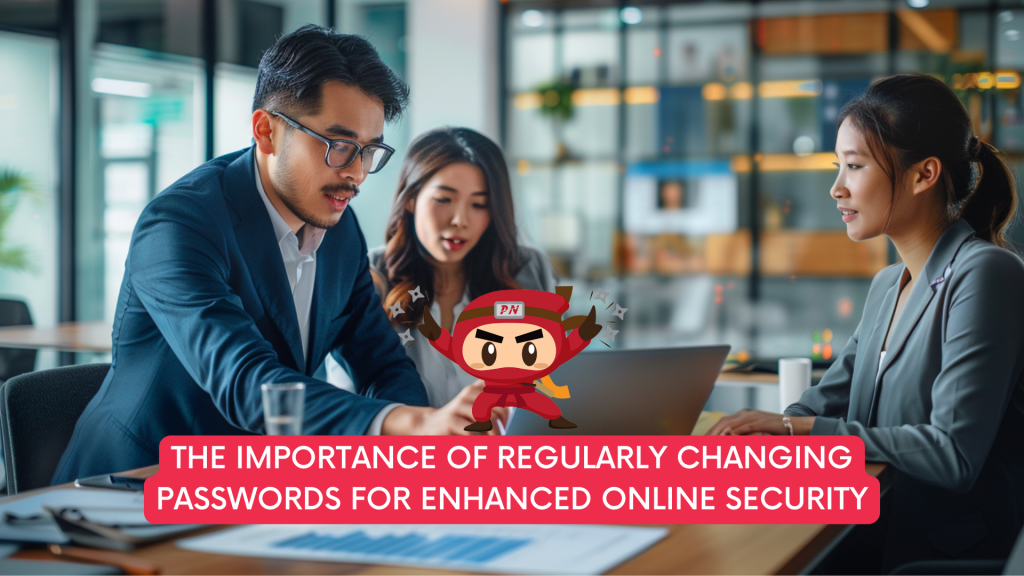
Where cyber threats loom large and personal data is constantly at risk, the importance of regularly changing passwords cannot be overstated. This simple yet effective practice serves as a cornerstone for enhancing online security by minimizing the risk of unauthorized access and fortifying defenses against evolving cyber threats.
Regularly changing passwords is not just a recommended practice; it is a crucial aspect of proactive defense strategy in the realm of cybersecurity. By frequently updating passwords, individuals and organizations can significantly reduce the likelihood of successful attacks, thwarting potential cybercriminals’ attempts to breach sensitive accounts and systems.
In the constantly evolving landscape of cyber threats, maintaining the same password for an extended period poses a significant risk. Hackers employ various tactics, such as brute force attacks, phishing schemes, and password spraying, to exploit vulnerabilities and gain unauthorized access to accounts. However, by regularly changing passwords, individuals disrupt these tactics, making it harder for cybercriminals to penetrate defenses and compromising digital identities.
One of the primary objectives of regularly changing passwords is to mitigate risks associated with compromised credentials. Passwords serve as the first line of defense against unauthorized access to sensitive information, ranging from personal accounts to corporate networks. By updating passwords at regular intervals, individuals and organizations minimize the window of opportunity for potential attackers to exploit vulnerabilities and compromise security.
Moreover, frequent password changes contribute to safeguarding digital identities in an ever-changing online landscape. As cyber threats continue to evolve and become more sophisticated, staying one step ahead is imperative for maintaining a secure online presence. By adopting proactive measures such as regular password changes, individuals and organizations can strengthen their resilience against emerging threats and protect their digital assets from malicious actors.
While the importance of regularly changing passwords is evident, it is equally essential to adopt best practices for effective password management. Merely changing passwords without adhering to proper guidelines may not yield the desired results. Therefore, individuals and organizations should consider the following recommendations:
In conclusion, regularly changing passwords is not just a cybersecurity best practice; it is a fundamental aspect of maintaining robust online security. By incorporating password changes into their routine, individuals and organizations can minimize the risk of unauthorized access, mitigate threats, and safeguard digital identities in an ever-evolving threat landscape. However, it is essential to complement password changes with effective password management practices to maximize security effectiveness truly. By adopting a proactive approach to password security, individuals and organizations can stay ahead of cyber threats and protect their valuable digital assets effectively.
Your appointed DPO can work with you on your PDPA compliance, ensuring that there will be policies in place to make sure that the handling of personal data is PDPA compliant.
A Data Protection Officer (DPO) oversees data protection responsibilities and ensures that organisations comply with the Personal Data Protection Act (PDPA). Furthermore, every Organisation’s DPO should be able to curb any instances of PDPA noncompliance as it is the officer responsible for maintaining the positive posture of an organisation’s cybersecurity.
DPOs complement organisations’ efforts to ensure that the organisation’s methods of collecting personal data comply with the PDPA. It also ensures that policies are set in place to make sure that there will be no instances of data breaches in the future.
Don’t wait any longer to ensure your organisation is PDPA compliant. Take our free 3-minute PDPA Compliance Self-audit checklist now, the same “secret weapon” used by our clients to keep them on track. Upon completion, we will send you the results so you can take the necessary action to protect your customers’ data. Complete the free assessment checklist today and take the first step towards protecting your customers’ personal data.
Importance of Efficient Access Controls that every Organisation in Singapore should take note of. Enhancing…
Prioritizing Security Measures When Launching a Webpage That Every Organisation in Singapore should take note…
Comprehensive Approach to Data Protection and Operational Integrity that every Organsiation in Singapore should know…
Here's the importance of Pre-Launch Testing in IT Systems Implementation for Organisations in Singapore. The…
Understanding Liability in IT Vendor Relationships that every Organisation in Singapore should look at. Understanding…
PDPA Compliance for Management Corporations that every organisation in Singapore should know. PDPA Compliance for…
This website uses cookies.